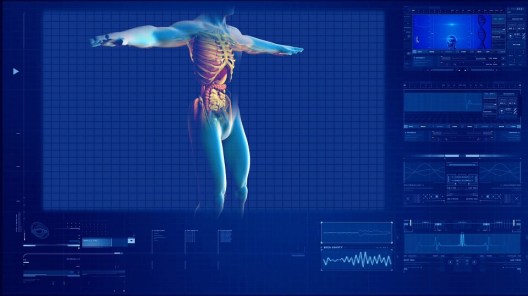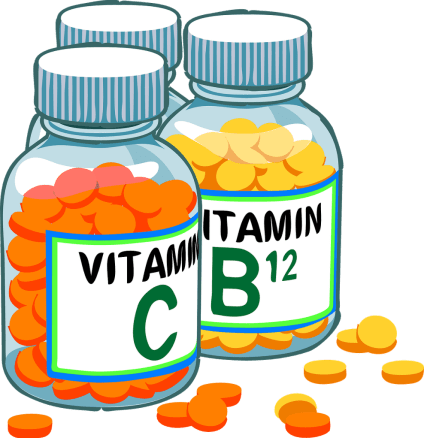Nutritional Therapy
Nutritional therapists base their careers around the adage “you are what you eat”. Because we aren’t doctors, we can’t claim to cure diseases – instead, we try to help alleviate health problems and promote well-being through nutritional means. We work with individuals to alleviate and prevent illness and disease, as well as to promote good health, by making dietary recommendations. Our focus is on the belief that there are nutritional and biochemical imbalances in the body that lead to ill health.

As nutritional therapists, we take a holistic approach with our clients. We develop a personalised nutrition and lifestyle plan to help maintain their well-being. This includes recommendations to restore nutritional balance, which may include guidance on avoiding certain toxins and allergens, detoxification and the use of supplementary nutrients such as high-dose vitamins. Nutritional therapy is classed as an unconventional, ‘complementary’ medicine and is intended for people with chronic health conditions or those who want to improve their general health and lifestyle. In our practice we make use of a diagnostic device, which works on the principle of quantum medicine. It collects the weak magnetic field of human cells, analyses it, and determines the results of a client’s health status. We interpret the report together with standard prevention recommendations. The report gives us an idea of how to combat clients’ deficiencies and future risks, thus enabling the client to make necessary lifestyle adjustments and to include supplementation where need.
Aspects of Health that Nutritional Therapy Addresses
Our services include taking into account the mental, physical and emotional aspects related to nutrition. It’s a complementary therapy, designed to help with health problems which are difficult to treat. We work with clients with digestive disorders, bowel disorders, skin problems, depression, fatigue and auto-immune diseases among many other conditions. Imbalances in the digestive system contribute to mal-absorption of nutrients which is synonymous with deficiencies in vitamins and trace minerals. Deficiencies in these nutrients result in mental/emotional imbalances e.g. a Vitamin B12 deficiency causes a disruption in the biochemical pathways that help produce your “feel good” hormones serotonin and dopamine. Deficiencies in Vitamin D3, along with other vitamins, can cause lethargy and other ailments. These are just a few examples, but the whole idea is to identify the imbalances and guide the clients to a healthier beneficial dietary plan. This is to help address the deficiencies as well as restore the lifestyle imbalances.
Basics of a Session

Our services are simple & convenient. Health Checks can be performed in any place and at any time, saving the time of clients. The cost for analysis is reasonable and affordable. The client will be expected to be available for an hour or more, depending on the severity of the case. At the first session with a client, we establish the reason for the client seeking help. There are no special requirements needed prior to doing the assessment e.g. no need to fast. We then spend some time talking with the client to gain a greater understanding of the problem. The client’s case history is taken, including medical, family, diet, and lifestyle history. We may also examine the client’s skin, hair, nails and tongue. The use of our diagnostic tests to further gather more information helps to identify the nutritional and health status of the client. This includes diagnosing any food allergies and intolerances, and other factors that could be contributing to specific health problems. As therapists, we then recommend a tailor-made programme for the client. The programme suggests which foods to avoid and which to increase, and in many cases the client may be urged to take specific nutritional supplements. Beneficial lifestyle changes for the client are always part of the regimen. The process of taking a detailed medical history, conducting tests and encouraging clients to understand the link between diet and their own future health helps towards optimal health.
Applications of Nutritional Therapy
We help identify the root cause of an ailment by addressing the underlying cause of illness rather than just treating symptoms. We aim to use the most natural, least toxic, and least invasive therapies first. We support the whole person and assess not just the physical condition but also factors that influence health and well-being. We provide information on the art of self-care and the steps a person needs to take to achieve optimal health. These principles and philosophies result in a practice that acknowledges each person as an individual and empowers them to accept greater responsibility in their own health care. Treating the person instead of the dis-ease is the better approach because we have to understand that deficiencies in nutrients can result in imbalances in all of the organs of the body. All the organs of the body “communicate” with each other biochemically and are reliant on each other. Therefore, the body should been seen as a whole system working together.
Results

In most cases, clients see improvements in the first week, but overall improvement and balance in the body does take time. If a person (over a period of 10-20 years) has made harmful nutrition and lifestyle choices, it is unlikely that their body will be in balance in such a short period of time. A case that highlights this is a person who has a fatty liver as a result of years of consuming inflammatory foods and medication. It would take up to 5 months of supplementation and a beneficial diet to flush out a fatty liver. Another factor that helps with improved results is developing better lifestyle habits and consistency in these lifestyle habits. A follow up session after 6 weeks is recommended to determine the effectiveness of the
Further Knowledge and Information
During our consultation, it is important for us to educate the client on nutrition and health, however, we can never cover everything as there is so much to learn. We encourage clients to get into a habit of doing research on their own. There are many websites and social media accounts on nutrition and medicine hosted by naturopaths, integrative medical practitioners, dieticians and nutritional therapists worldwide. This can be very helpful as part of the personal research that clients need to access. For a great book on nutrition, check out the reference section at the end of this article. To book a consultation with Transitions Healthcare, please go here Find a Practitioner . To learn more about nutritional therapy and other modalities, join our Beginner’s Course today! Beginners Course to Ansari Holistic Healing
Conclusion

We advise clients to be more aware of what they are exposing themselves to. Reading labels and understanding the terms in the fine-print on packaging is essential to safeguard yourself from anything that could be harmful on the supermarket shelf. Gaining knowledge on food and understanding the need and content of all food groups: proteins, carbohydrates, fats and not forgetting fibre and water in your daily regimen. Whatever you buy to eat think about it first and ask “Is this good for me? Do I really need this?” so that you could make a logical and healthy decision over your purchases. Understand and define the difference between “hunger” and “cravings” for yourself. Sometimes it’s just a bit of dehydration that could be mistaken for hunger and you tend to reach out for cheesecake instead of water. Your choice of household cleaning chemicals and personal hygiene products like deodorants or body washes in the market today contain chemicals that are toxic. Make better choices in this regard too. Alternatives are available. As a principle whatever you use make sure they are ORGANIC and NON-GMO. This will put you on the right track towards a healthier lifestyle.
References
BALLENTINE, R. (2014). Diet & nutrition: a holistic approach. Pennsylvania, USA, Himalayan International Institute.

